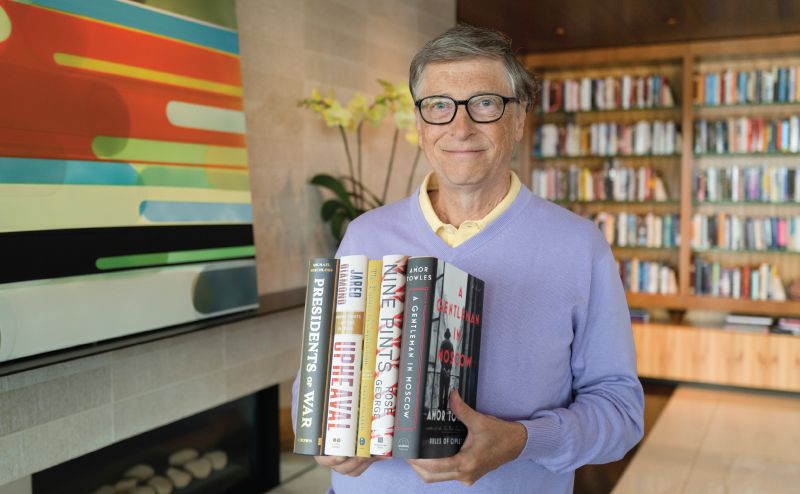The truth about Bill Gates
Some months ago I watched Inside Bill’s Brain — the Netflix (yes, Netflix again) documentary about — shocker — Bill Gates’ brain.
The premise of the documentary as I remember is the following: Bill Gates is an extremely intelligent inventor that first revolutionized software with Microsoft, and has since put his brain towards solving many of the world’s poverty and health problems through the Bill and Melinda Gates Foundation. How does he do this? How does his mind work? Find out — subscribe to Netflix now!
I get it, this is a real-life A Beautiful Mind-like story opportunity. People love to hear about the truly unique, wonderfully smart people that walk this earth. The individuals that single-handedly changed the course of mankind.
And personally, I think a lot of Bill Gates: his successes, the work he’s done through his foundation, and the work he’s doing now to fight COVID (by implanting chips into our brains and everything). By no means do I want to dismiss any of that.
However, the focus on his brain is rather silly. I feel that, just like with The Last Dance, this documentary buried the lede.
To illustrate my issue, let me point you to yet another Netflix production: The Founder.
The Founder is a dramatized telling of the founding of McDonald’s — yes, the fast-food chain. McDonald’s was founded by two brothers who pioneered creating processes to produce fast-food both efficiently and of reasonable quality (think: scientific management applied to just-in-time food production). The original McDonald’s restaurant was very successful, but their original attempts to franchise the business failed.
Why? The reason for this is described in one of few books with a number in the title that I’d actually recommend — The 21 Irrefutable Laws of Leadership. In fact, it’s part of Law #1:
The Law of the Lid: Leadership Ability Determines a Person’s Level of Effectiveness
From the book:
The idea of franchising restaurants wasn't new. It had been around for several decades. To the McDonald brothers, it looked like a way to make money without having to open another restaurant themselves. In 1952, they got started, but their effort was a dismal failure. The reason was simple. They lacked the leadership necessary to make a larger enterprise effective. Dick and Maurice were good at efficient, cut costs, and increase profits. They were efficient managers. But they were not leaders. Their thinking patterns clamped a lid down on what they could do and become. At the height of their success, Dick and Maurice found themselves smack-dab against the Law of the Lid.
But then they met Ray Kroc. Ray had no particular restaurant related smarts, but he had another skill — leadership:
The leadership lid in Ray Kroc's life was sky high. Between 1955 and 1959, Kroc succeeded in opening 100 restaurants. Four years after that, there were 500 McDonald's. Today the company has opened more than 31,000 restaurants in 119 countries.' Leadership ability-or more specifically the lack of leadership ability-was the lid on the McDonald brothers' effectiveness.
And this brings us back to Bill Gates. The real story is that sure, he is a smarty. He is an creator and inventor, like the McDonald’s brothers. But he is a leader too.
Microsoft employs 156k people today. Bill Gates was leading those people. If Microsoft would have been a one-person software shop, it would have made no impact on the world. However, Bill was able to scale it to 156k people and it’s changed a couple of things. Subsequently, he used the moneys that he earned to start the Melinda and Bill Gates Foundation to solve inequality and poverty. Regarding the Foundation, Bill was smart enough (it’s all about his brain, after all) to understand that just throwing money around randomly doesn’t solve all that much, especially the amounts that Bill has to spend. To make a difference, you need to be able to attract a group of people around you to scale that effort. Bill did that. The Bill and Melinda Gates Foundations employs almost 1.5k people.
Obviously, it’s not just about the sheer amount of people employed — but the amount of products, projects, impact that scales along with it. Running organizations of such a size is no walk in the park.

While the documentary highlights example after example of how Bill himself is involved in designing various things, including some sort of toilet, the more relevant skill is different. The achievement of Bill Gates isn’t that he has an amazingly high IQ or that he reads a lot of books. It’s that he figured out to how to attract a shit ton of talent around him, and scale his impact.
Honestly, Bill may as well have been a dumb-ass, as long as he would have been able to surround himself with lots of smart people that help him achieve his vision.
But likely, that wouldn’t have made as attractive a documentary as dissecting a successful man’s brain.

